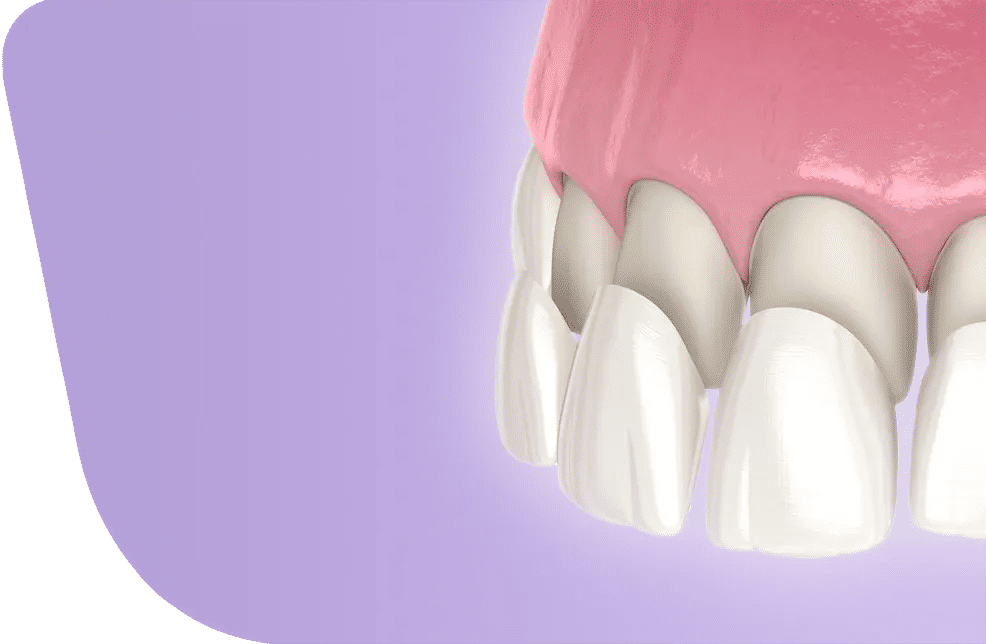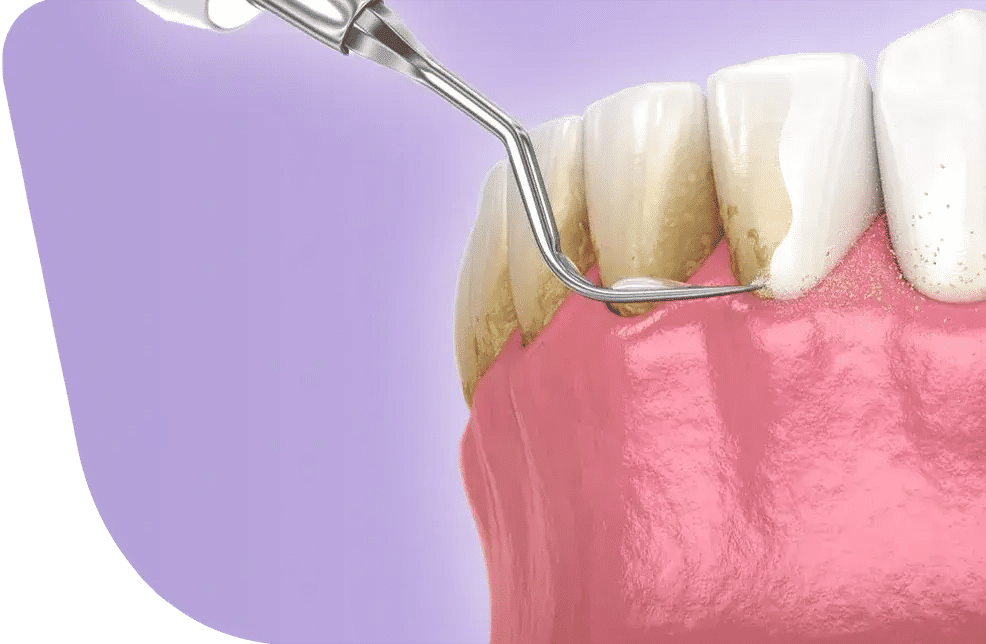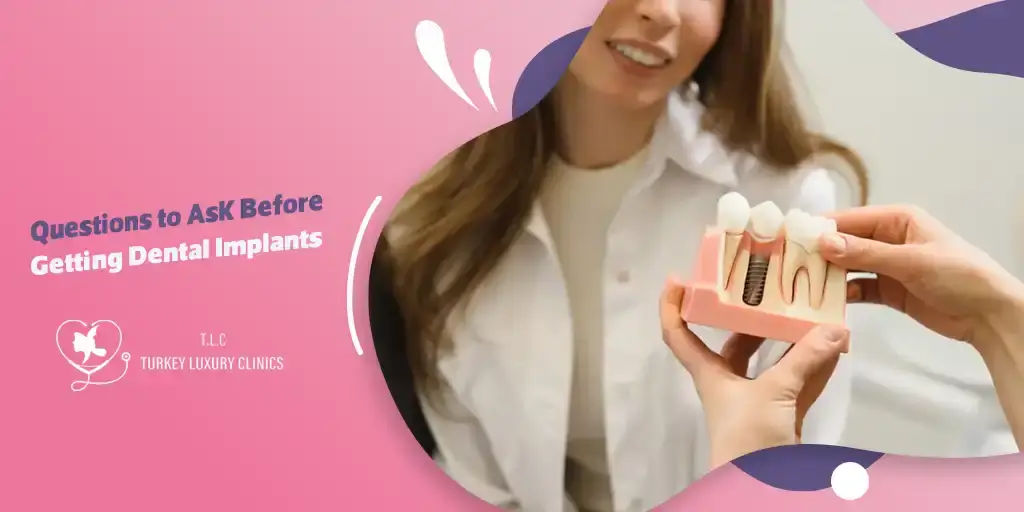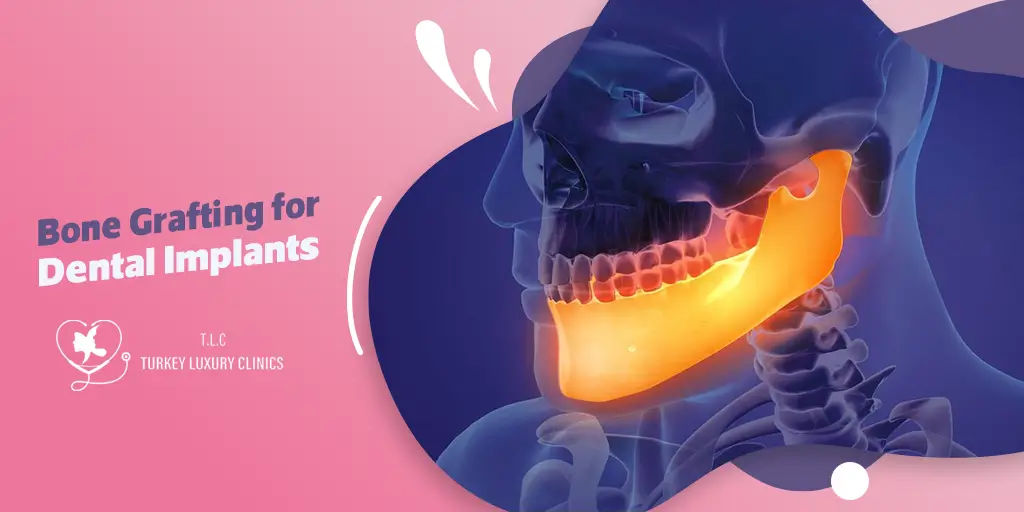- - Best Types of Dental Implants
- - 11 Types of Dental Implant
- - Types of Dental Implant Materials
- - Types of Dental Implant Crowns
- - Types of Dental Implant Abutments
- - Pre-Implant Procedure Types
- - How to Choose the Best Type of Dental Implant
- - Recommended Dental Implant Types for Different Cases
- - Choose the Best Implant Type With Turkey Luxury Clinics Experts
Dental implants are the ideal solution for replacing missing teeth, improving both your smile and oral function. There are multiple types of dental implants, which differ in placement procedures, materials used, and overall design. Each type is tailored to a patient’s specific needs, including bone availability and the number of missing teeth. Naturally, many patients ask: What are the different types of dental implants, and which one is right for me?
Discover the answers with Turkey Luxury Clinics and find the ideal solution for your smile. Book a personalized consultation to make an informed decision and choose the best dental implant option for you.
Best Types of Dental Implants
11 Types of Dental Implant
There are different types of dental implants, distinguished by how the implant is anchored: Endosteal, Subperiosteal, and Zygomatic. The choice among them depends on jawbone density and individual patient needs.
In addition to these, there are specialized dental implant types tailored to meet specific requirements. Depending on the number of missing teeth, bone quality, or urgency of tooth restoration, implants can vary by the number of posts, the type of prosthetic device placed on them, and advanced options such as mini implants or immediate-load implants.
These solutions are used in particular situations, including low bone density, limited space, same-day tooth replacement, or restoring multiple or full arches of teeth.
1. Endosteal Implants
Endosteal implants are the most common type of dental implant. In this procedure, screw-shaped posts are surgically placed directly into the jawbone. After the bone heals and fuses with the implant (osseointegration), crowns, dental bridges, or implant-supported dentures can be attached. This standard dental implant procedure provides strong support for single or multiple tooth replacements and is widely used across different types of dental implant systems.
2. Subperiosteal Implants
Subperiosteal implants are placed on or above the jawbone, just under the gum. They are used when there is insufficient healthy jawbone to support endosteal implants, eliminating the need for bone grafting. During the procedure, a metal framework with posts is positioned on the jawbone, and as the gums heal around it, the posts protrude to hold the artificial teeth. This type of dental implant procedure is an alternative solution for patients with minimal bone and is suitable for cases where standard implants are not feasible.
3. Zygomatic Implants
Zygomatic implants are a specialized and complex type of dental implant for patients with severe bone loss in the upper jaw. Instead of the upper jawbone, the longer implant posts are anchored into the zygomatic (cheek) bone, allowing full-arch restorations without the need for bone grafting. This advanced dental implant procedure provides an effective solution for full-mouth dental restoration in patients with very low jawbone density, making it a valuable option in complex cases where other implant types are not possible.
4. Single Tooth Dental Implant
A single-tooth dental implant is the most popular solution for the permanent replacement of a missing tooth, whether a front or molar tooth. It is one of the most common types of dental implant systems used for both cosmetic and functional restoration.
The main components of a single tooth implant include a screw-shaped post, an abutment, and a crown, with a wide range of material options available.
In a standard single tooth implant, a titanium post is typically used along with an abutment and a porcelain crown. This combination is strong, durable, and provides a natural look and feel. With proper care, a single tooth implant can last approximately 15 to 20 years.
5. All-on-4 (Full-Arch Implants)
All-on-4 implants replace an entire arch of teeth using just 4 implants. It is one of the most affordable 2and popular options for full-mouth dental restoration. This procedure uses a minimum of just four strategically placed implants—typically two in the upper jaw and two in the lower jaw—to support a full arch of prosthetic teeth (usually 14 teeth per arch).
The All-on-4 dental implant procedure is ideal for patients with multiple missing teeth or complete tooth loss, providing a strong, stable, and long-lasting solution for full-mouth restoration.
6. All-on-6 Implants (Full-Arch Implants)
All-on-6 implants are an advanced full-arch dental implant solution that uses six implants to provide additional support and stability compared to the All-on-4 system. This procedure is ideal for patients who require stronger support for a full arch, or who have partial jawbone density issues, ensuring even distribution of biting forces. During the procedure, six implants are strategically placed in the jaw to support a complete set of prosthetic teeth, providing enhanced stability and longer-lasting results.
7. All-on-8 Implants (Full-Arch Implants)
All-on-8 implants are a highly advanced full-arch dental implant solution that uses eight implants to provide maximum support and stability for the entire jaw. This method is suitable for patients needing the highest level of strength and stability, such as those with weakened jawbone or who want the most durable full-mouth restoration. Eight implants are placed to anchor a complete arch of prosthetic teeth, offering superior stability, comfort, and long-term functionality.
8. Mini Implants
Mini implants are smaller-diameter dental implants often used for patients with low bone density or narrow jawbone situations, where traditional implants may not be suitable. They are also commonly used to stabilize partial or removable dentures.
As a minimally invasive type of dental implant system, mini implants provide a convenient and effective solution for patients needing denture stabilization or small-scale tooth replacement.
9. Immediate Load Implants
Immediate load implants, also known as same-day implants, allow a temporary crown or bridge to be placed on the same day as the implant surgery. This provides a fast restoration of both function and appearance.
This dental implant procedure is ideal for patients who cannot wait for the traditional healing period, whether for aesthetic reasons or functional needs. It is also a popular choice among celebrities seeking quick smile restoration.
10. Dental Implant Bridges
Dental implant bridges are used to replace multiple missing teeth by anchoring a bridge to two or more dental implants. Unlike traditional bridges, which rely on adjacent natural teeth, implant-supported bridges provide stronger support and long-lasting stability. This dental implant procedure is ideal for patients missing several consecutive teeth and seeking a durable, natural-looking solution.
11. Implant-Supported Dentures
Implant-supported dentures are full or partial dentures that are securely anchored to dental implants in the jaw. Unlike traditional removable dentures, they provide better stability, improved chewing efficiency, and greater comfort. This type of dental implant system is perfect for patients with multiple missing teeth or complete tooth loss, offering a reliable and long-term solution for full-mouth restoration.
Types of Dental Implant Materials
The main implant body—the screw or post that fuses with the jawbone, varies by material. Titanium is the most common material, though zirconia can also be used.
Titanium Implants: Titanium is a strong, biocompatible metal that integrates well with bone. It is ideal for molars and back teeth, which require high resistance to withstand chewing forces. However, its gray color may make it less suitable for front teeth dental implant, as a dark line along the gum can affect aesthetics.
Zirconia (Ceramic) Implants: A metal-free option made entirely of ceramic. Zirconia offers high strength, good biocompatibility, and superior aesthetics due to its natural tooth-like color. It is especially suitable for front teeth and for patients with metal sensitivities.
Types of Dental Implant Crowns
Dental implant crowns differ by material, such as porcelain, zirconia, or PFM (porcelain-fused-to-metal), with each type offering unique durability and appearance.
1. Porcelain-Fused-to-Metal (PFM) Crowns: A hybrid crown with a strong metal base covered by tooth-colored porcelain, combining durability with a natural appearance. Its translucency is lower than that of metal-free options.
2. Porcelain Crowns: Made entirely of ceramic, these crowns provide a natural, translucent look. They are ideal for front teeth, where aesthetics are a priority.
3. Zirconia Crowns: Ultra-strong, biocompatible all-ceramic crowns. They are more durable than porcelain but less translucent, making them suitable for back teeth, long bridges, or cases requiring high strength and resistance to chipping.
Types of Dental Implant Abutments
Dental implant abutments connect the implant to the crown and come in several types. Stock abutments are pre-made for simple cases, while custom abutments are designed for a precise fit in more complex situations. Abutments can also serve specific functions: healing abutments guide gum healing after surgery, and angled abutments correct implant alignment when needed.
Abutments may be made from titanium, metal alloys, zirconia, or zirconia-titanium hybrids, chosen for strength, biocompatibility, and aesthetics. Selecting the right abutment ensures both proper function and a natural-looking smile.
Pre-Implant Procedure Types
An additional pre-implant procedure may be required before undergoing a dental implant; they aim to ensure a healthy bum and jawbone strength to ensure the best healing and success of the procedure. They usually include:
Bone Grafting
Bone grafting before dental implant is a minimally invasive surgery that transplants bone tissue into the jaw to increase bone volume and strengthen areas with insufficient bone, creating a stable foundation for dental implants. This pre-implant procedure is essential for patients who do not have enough natural bone to support standard implants.
Sinus Lift
A sinus lift elevates the sinus cavity in the upper jaw, allowing implants to be placed where the bone height is insufficient. This procedure is commonly used for upper jaw dental implants in patients with bone loss near the sinus area.
Ridge Expansion
Ridge expansion widens a narrow jaw ridge to accommodate standard dental implants. By increasing the width of the bone, this pre-implant procedure ensures proper implant placement and long-term stability.
How to Choose the Best Type of Dental Implant
Choosing the right dental implant type starts with consulting an experienced implant dentist. They will evaluate your jawbone density, overall health, and aesthetic preferences to recommend the most suitable solution.
Before deciding on the implant type, post, material, system, design, or placement method, consider the following factors:
- Bone Density and Quantity: The amount and quality of your jawbone are crucial in determining which implant type can be used.
- Extent of Tooth Loss: Replacing a single tooth versus a full arch requires different implant strategies.
- Oral Health: A complete assessment of your oral health ensures the implant will be safe, functional, and long-lasting.
- Aesthetic Considerations: Your smile goals and the visibility of the implant may influence material and design choices.
- Age: Younger or older patients may require specific considerations for bone growth, healing, and long-term success.
- Recovery Period: Some implant procedures, such as immediate-load implants, offer faster results, while others may require longer healing times.
Recommended Dental Implant Types for Different Cases
Choose the Best Implant Type With Turkey Luxury Clinics Experts
Ready to restore your smile? Contact Turkey Luxury Clinics today and schedule your personalized consultation to find the perfect dental implant solution for you.














.webp)
.webp)
.webp)
.webp)

